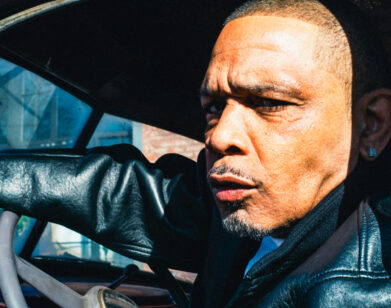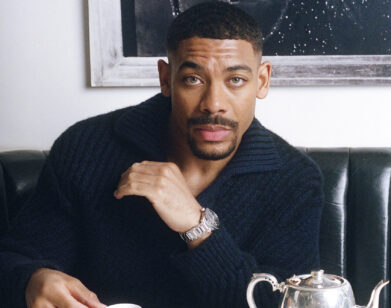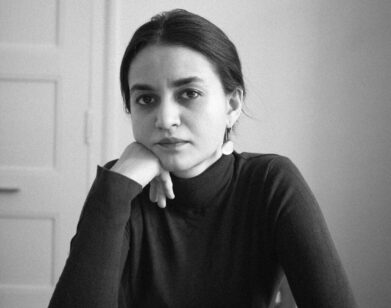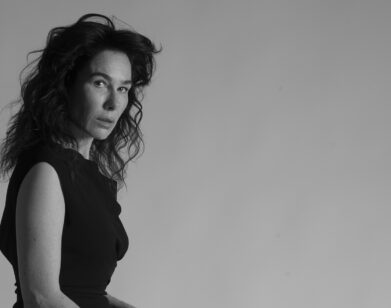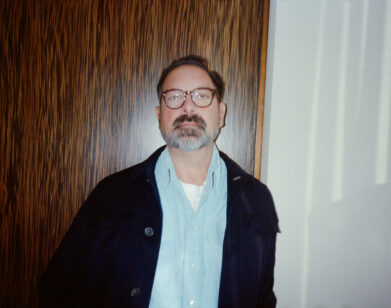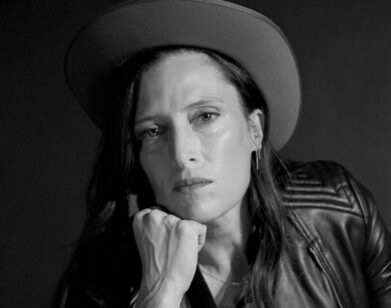Steve Coogan Doesn’t Believe in Fairies
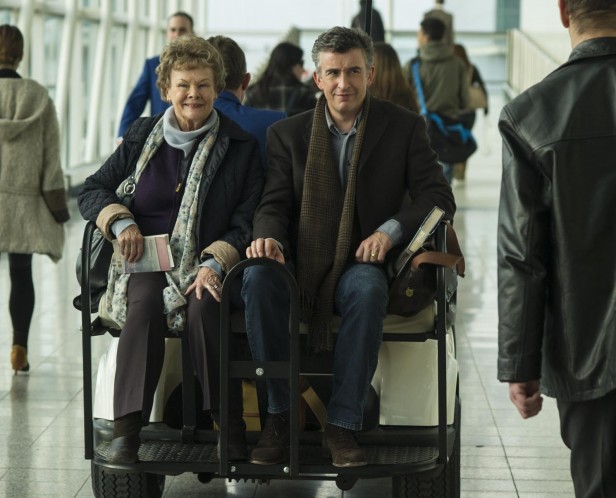
ABOVE: JUDI DENCH (LEFT) AND STEVE COOGAN IN PHILOMENA. PHOTO: ALEX BAILEY © 2013 THE WEINSTEIN COMPANY.
In 1955, Philomena Lee’s son was given up for adoption. She was not given any notice—a chance to say goodbye to the child she had raised for over two years. It was just the way things went at Roscrea convent in Ireland, a place where, in exchange for somewhere to birth her child, Philomena worked for free for three years.
Philomena kept her eldest child a secret for five decades. Then she met journalist Martin Sixsmith, who immortalized her story in an article for The Guardian and a book, The Lost Child of Philomena Lee (2009). Now, Philomena’s personal tragedy is about to gain international attention—and perhaps a few Oscars—with The Weinstein Company’s Philomena, a Stephen Frears-directed film starring Steve Coogan and Judi Dench. “What happened to Philomena—it’s tragic, but there’s way more tragic news going on elsewhere in the world everyday,” explains Coogan, who also co-wrote the script and produced the film. “In some way, it was quite ordinary, and that’s what appealed to me.”
EMMA BROWN: How do you ask someone you don’t know to tell you this harrowing and very personal, unresolved story about their life?
STEVE COOGAN: First of all, you need to get their respect and trust. That comes through having meetings and more meetings. I talked to Martin, who took the initial step in telling his agent to give the rights to me and not other parties that were interested. Then I sat down with Martin to tell him what I wanted to do with the story, including making him, as the author, one of the characters in the story, which is quite a big move. A bold move. Yet, it felt entirely right to me. I had to show him how I wanted to portray him. That was one hurdle because, of course, I wanted to play around with his personality and invent things about his personality. I’d take some things that were true and build on them.
He had seen my work with Michael Winterbottom and liked what I did—he loved 24 Hour Party People—and I think he saw that that was a more interesting route. When I sat down with Philomena and [her daughter] Jane, Jane, I think, was skeptical about me being involved because she only knew me as comic and thought perhaps I was going to mock and exploit her mother. I had to allay those fears straight away and say that the film would honor her mother. There’s gentle mockery of her mother as Philomena in the film—we exaggerate things about her mum, who is very funny. She’s not quite as dotty as we portray her, but she’s certainly outgoing and has a great sense of humor. So it’s not many miles from who she is. It’s not a distortion; it’s just an embellishment of what’s real.
Martin didn’t need much convincing in terms of artistic license because he had employed the same kind of creative, poetic license in his books. With Philomena’s daughter, once she realized what we were doing and saw how it worked, slowly started to warm up. And Philomena just talked. Philomena just told me what happened to her and was very open about it. Actually, getting Philomena to talk is not difficult at all because she had been unburdened of this secret she kept for 50 years. For her, it’s just like a waterfall. It’s all cathartic, so she’ll talk forever. I just asked her questions. I asked her if she forgave people for what they did to her and she said, “Yes.” A light went on in my head and I thought, “That’s incredibly powerful.” People might not understand it, actually. [In the film], her reaction is totally real, and Martin’s anger at the end is invented. Martin never had that showdown, but that’s something I knew the audience would crave—some sort of cathartic moment of anger.
BROWN: Did you include any aspects of yourself in the character of Martin?
COOGAN: Martin is not Catholic. I made him a lapsed Catholic—I am a lapsed Catholic. It’s very personal to me because my parents are Catholic and a lot of people in my life who I love and respect are Catholic. I wanted to express my frustration with aspects of religion and, at the same time, dignify it through Philomena. The scene most personal to me in the film is when Martin attacks Philomena’s religion and then she goes into the church and walks out, not blessing herself. Martin sees that and is suddenly terrified that he may have caused someone to lose their faith.
BROWN: Were you worried about your family’s reaction to the film?
COOGAN: There was probably a little bit of nervousness that I might cast aspersions on what they regard as important. But I knew that I wasn’t. With the grace and serenity of Philomena’s forgiveness, she ends up dignifying the film in the most important way. However much I point my finger at the hierarchy within the Church and the structures of the Church and the practices of the Church, the fundamental simplicity of parts of that faith is a dignified thing and something I wanted to celebrate despite the criticisms. So, yes, I was nervous, but I knew there would be a vindication when they saw it, and that’s what happened. They were delighted. In Venice, we got an award from a secular organization called the Brian Awards, named after Life of Brian, for the promotion of secular beliefs in the film. We also received an award named after a Jesuit priest of behalf of a Catholic organization. So the Catholics felt they were honored and atheists felt they were honored.
BROWN: Realizing that even if you don’t agree with someone’s faith, you shouldn’t try to shake them of it is quite an enlightened view. When did you come to realize this?
COOGAN: I suppose just in the last few years—you don’t have to win an argument. No one has to win. You should just celebrate. Vive la différence, as the French say. The irony is, of course, that many of the values that I was raised with, that I think are very important, that I hold dear, are the result of a religious faith. I’m really encouraged by Pope Francis, because I think his attitude is totally laudable. The Church at its best is about empowering the disempowered and giving voice to the dispossessed and not putting a price on everything and not being about the bottom line and not worshipping the market or everything that is material. It’s about emphasis; we can all enjoy these things. I have a nice house. I have nice cars and things, and I like them. But we need to be mindful of deifying the material. I feel like I’ve learned to have those values through my family’s faith. But in terms of my own beliefs, I love the quote of Douglas Adams at the beginning of Richard Dawkins’ book [The God Delusion, 2006]: “Isn’t it enough to see that a garden is beautiful without having to believe that there are fairies at the bottom of it too?” That’s my view. I don’t want to go around making everyone else agree with me. I don’t feel the need to do that.
BROWN: I know a few Catholics who turned away from the Church in their youth, only to return to it in middle age.
COOGAN: [laughs] I know. To me, I like and understand ritual and I think it is important. Things that we do that give us comfort are important. Like Christmas, I like to go into a church and hear the carols sung. There’s a comfort of actually going inside of a church, I find them serene. They’re unchanging.
[But] I’m not turned away from the church through anger, although I have criticisms of it. It’s through finding affirmation of life and illumination of life through creativity and art. I think there’s as much profundity and wisdom in Shakespeare, more so in fact, than those in the Bible. The Bible, undoubtedly, is a mixed bag. I don’t see myself coming back to the Church. I do like the tradition. If you come from a strong culture, you can decide what you agree with and what you don’t agree with. If you’re given a blank canvas, it’s almost harder in life. I like the fact that people come together who have shared values, but I don’t believe that a man died 2,000 years ago and was crucified on a cross to save me from my original sin. I do believe in trying not to be selfish, all those values of philanthropy. Aldous Huxley said at the end of his life, “It is a bit embarrassing to have been concerned with the human problem all one’s life and find at the end that one has no more to offer by way of advice than ‘try to be a little kinder.'” I really like that simplicity.
BROWN: There’s a contrast between intellect and intuition in the film—the way Martin approaches things and the way Philomena does. Do you lean towards one more than the other?
COOGAN: No, I think I’m both. I knew lots of Irish ladies in my life who would say daft things and then would just say something incredibly truthful in a very simple way with simple language—a few well chosen words that would take an intellectual five minutes to express. I like that. I remember what George Bush said, “There’s book smart and there’s folk smart.” What terrifies me is that I might somehow endorse that view so people think they don’t have to read books anymore. But I think that there’s a duality. I empathize with both of those: I identify with Martin and I know lots of people in my life like Philomena. She’s an everywoman, in some ways. What attracted me to the story was I thought she could be my mother, she could be my grandmother. There’s something universal about her.
BROWN: Have you ever been moved by an article like this before?
COOGAN: Yes, it wasn’t like this is the only thing. Of course, sometimes things make me cry. I cried at Mamma Mia—I wish I remade that. [laughs] [But] I found it quite overwhelming reading it. It touched me and I wanted to somehow make other people feel the way I’d felt, but also use comedy to lift people up. I didn’t want it to be one of those films that is an ordeal to watch. I wanted for people to somehow find some light.
BROWN: Do you need a different skill set for comedy versus drama?
COOGAN: Knowing about comedy has helped me with the drama. To see people laugh, it’s like there are moments of catharsis in the middle of sadness. [But] I think you need to have the guts to not use comedy. Often, the people that work in comedy use a joke to avoid contemplation. It’s like, “Quickly make a joke so we don’t have to think about it too much.” I didn’t want to do that.
PHILOMENA IS CURRENTLY PLAYING IN LOS ANGELES AND NEW YORK AND WILL BE OUT IN WIDE RELEASE THIS WEDNESDAY, NOVEMBER 27.

